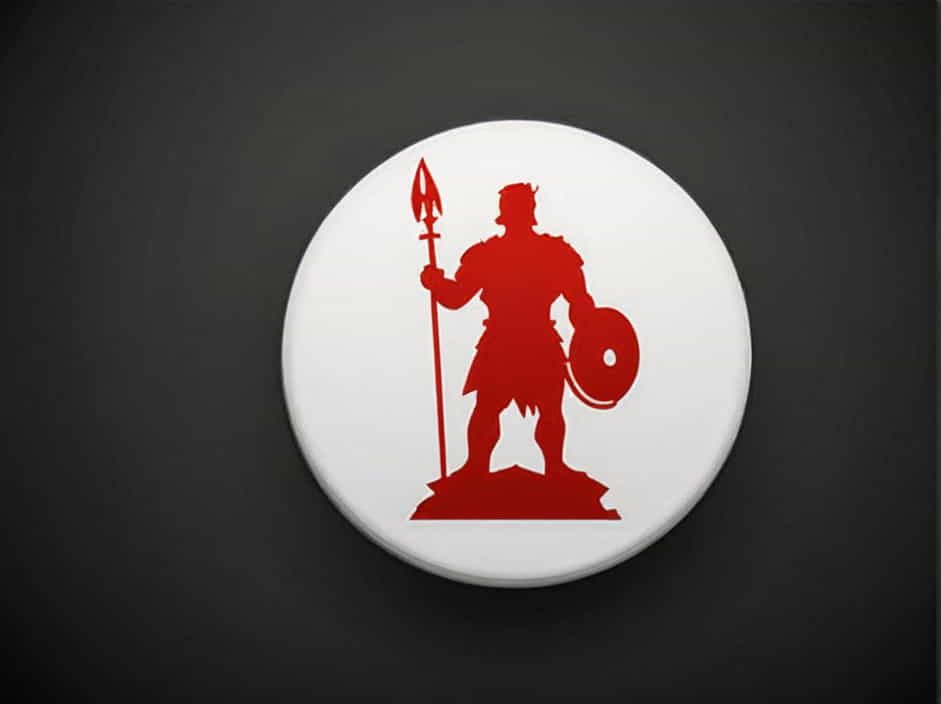In Roman mythology, Mars was the god of war, known for his power, strength, and influence over battles and military affairs. Unlike his Greek counterpart Ares, Mars was not just a destructive force but also a symbol of discipline, strategy, and the protection of Rome.
This topic explores the origins, symbols, worship, and lasting impact of Mars, revealing why he was one of the most important deities in Roman culture.
The Origins of Mars
Mars: Son of Jupiter and Juno
Mars was the son of Jupiter and Juno, the king and queen of the Roman gods. Unlike Ares, who was often seen as impulsive and reckless in Greek mythology, Mars was viewed with respect and honor.
Romans saw him as a protector of the state, representing the disciplined and strategic side of warfare rather than just bloodshed and chaos.
A Central Figure in Roman Mythology
Mars played a crucial role in the mythical founding of Rome. He was considered the father of Romulus and Remus, the legendary twins who founded the city. This connection made Mars deeply integrated into Roman identity, as he was not just a war god but also an ancestor of the Roman people.
The Symbols and Attributes of Mars
Weapons and Armor
Mars was often depicted as a strong warrior, wearing a helmet, armor, and a red cape. He carried a spear or a sword, symbolizing his readiness for battle. His weapons represented not only physical combat but also the power and authority of Rome’s military strength.
The Wolf and the Woodpecker
Two animals were sacred to Mars:
- The wolf, symbolizing strength and ferocity, was also connected to the story of Romulus and Remus, who were raised by a she-wolf.
- The woodpecker, believed to be a messenger of Mars, was seen as a sign of courage and protection for soldiers.
The Shield of Mars (Ancile)
One of the most famous symbols associated with Mars was the Ancile, a sacred shield believed to have fallen from the heavens. This shield was kept in the Temple of Mars and was said to bring protection and victory to Rome.
Worship and Festivals of Mars
The Temple of Mars Ultor
One of the most significant places dedicated to Mars was the Temple of Mars Ultor (“Mars the Avenger”), built by Emperor Augustus after his victory over Caesar’s assassins. This temple became an important site for military ceremonies and public celebrations.
The Festivals of Mars
Mars was honored in several major festivals, including:
- Martius (March) – The month of March was named after Mars and was a time of military preparations for the upcoming campaign season.
- The Festival of Mars (Feriae Marti) – Held in March, this festival involved chariot races and sacrifices to gain Mars’s favor in war.
- The October Horse – A unique ritual where a horse was sacrificed to Mars as an offering for military success.
The Role of Priests and the Salii
Mars had a special group of priests called the Salii, known as the “Dancing Priests of Mars.” They performed sacred rituals and dances while carrying the Ancile shields, asking for protection and strength for Rome’s soldiers.
Mars in Roman Society and Warfare
A Patron of Soldiers and Generals
Mars was deeply connected to the Roman army. Soldiers prayed to him before battles, seeking his strength and favor. His influence extended beyond individual soldiers to generals and emperors, who often dedicated victories to him.
The Roman legions carried standards and symbols representing Mars, reinforcing the idea that he was always present on the battlefield.
Mars and the Roman Identity
Unlike in Greek mythology, where Ares was often seen as violent and uncontrollable, Mars was considered a just and noble warrior. Romans believed that war was necessary for defending and expanding their empire, and Mars symbolized the honorable and disciplined aspects of military power.
This respect for Mars made him not just a god of battle, but a guardian of Rome’s stability and future.
The Legacy of Mars
Influence on the Roman Empire
Mars continued to be worshipped throughout the Roman Empire. Many emperors associated themselves with him, presenting themselves as warriors and protectors of Rome. His name and image appeared on coins, statues, and military banners, reinforcing his role as a symbol of Roman strength.
The Transition to Christianity
With the rise of Christianity, the worship of Mars declined. However, his influence remained in military traditions, and his name was preserved in places like Martius (March) and in cultural references to war and strength.
Modern References to Mars
- The planet Mars is named after him, symbolizing its red color, reminiscent of blood and battle.
- Martial arts take their name from Mars, emphasizing discipline and combat skills.
- His legacy continues in literature, films, and historical studies about Roman warfare.
Mars was more than just a god of war-he was a symbol of strength, discipline, and the protection of Rome. His connection to the origins of the city, military traditions, and Roman identity made him one of the most revered deities in ancient times.
From the battlefields of Rome to modern culture, the influence of Mars remains a powerful reminder of the warrior spirit and the ideals of strategy, courage, and honor.
